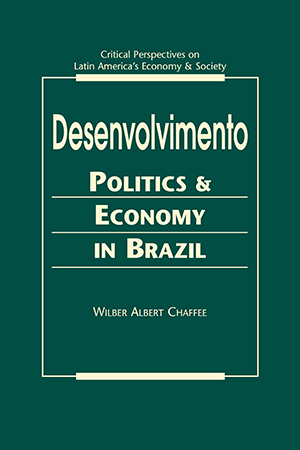
- 1997/232 pages
- Critical Perspectives on Latin America’s Economy and Society
Desenvolvimento:
Politics and Economy in Brazil
The Brazilian economy has long been characterized by rapid growth—but equally by high inflation and an extreme maldistribution of wealth, despite the strong international reputation of the country's economists. Seeking to explain this, Chaffee links political interest with economic policy, showing how short-term political needs have dominated over long-term economic values.
The book begins with a brief economic history of Brazil since 1940 and a discussion of desenvolvimento, the ideology of growth that has shaped Brazil’s economic decisions for more than five decades. Subsequent chapters address political macroeconomic issues—particularly inflation, unemployment, and a range of inequalities—and consider the relationships among political institutions, popular support, and politicians seeking to maximize their personal gain.
Chaffee then applies his themes to three periods: the military governments (1964-1985), the civilian presidency of José Sarney (1985-1990), and the terms of Fernando Collor de Mello and his successor Itamar Franco. Here, he systematically compares attempts at economic stabilization and the political decisions that defeated their implementation. The final chapter of the book discusses the Real Plan, Brazil’s latest attempt at economic stabilization.





